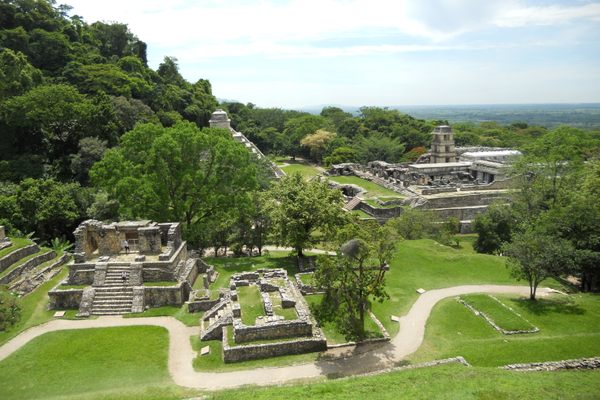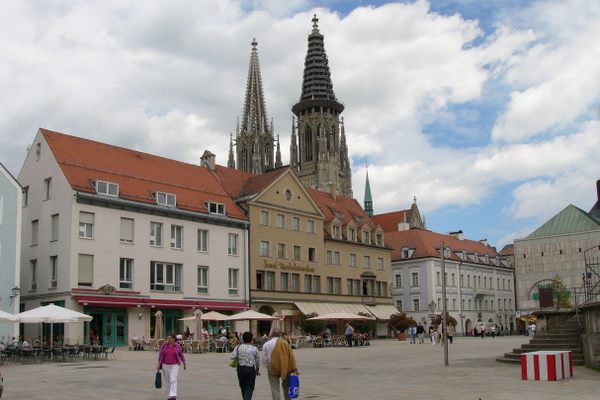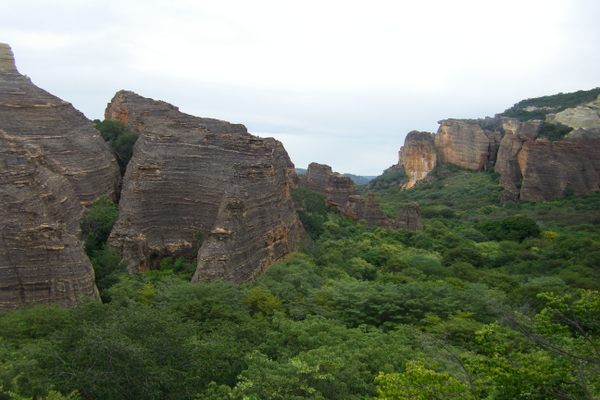Sanilac Petroglyphs State Historical Park
Ancient petroglyphs discovered only after a massive fire swept across Michigan in the 1880s.
When Clara Barton founded the American Red Cross in 1881, the first disaster that the nascent organization responded to was the forest fires of Michigan. The fires burned over a million acres of central and eastern Michigan, including all of the Thumb of Michigan. The fires killed 282 people across the region.
But these fires (possibly started by fragments of a comet) revealed petroglyphs carved by an ancient Native American people. The petroglyphs were carved into the sandstone in Sanilac County but remained hidden by dense forests until the devastating fire exposed them.
Once uncovered by the fires, area residents would carve out chunks of the petroglyphs as souvenirs, leading to the need for protection of the artifact.
The petroglyphs, which are called ezhibiigaadek asin (“written on stone”) in the Anishinaabemowin language, are carved into a large rock on the ground that is forty feet long and fifteen feet wide. Carved between 300 and 1,000 years ago, the drawings were likely made by the Hopewell or Chippewa Indians. They depict flying birds, other animals, and a figure that appears to hold a bow and arrow.
Archaeologists have not determined the purpose or use of the drawings, though some have speculated that they were a destination for vision quests, as the rock is isolated near the fork in river. Shaman and holy men may have used the rock as a record of their visions, depicting animals that came to them in dreams.
According to local tribal accounts, the carvings were meant to hold guidance for future tribe members, as well as recording a history of the people who carved them.
The Sanilac Petroglyphs are the only known prehistoric carvings in Michigan. Other petroglyphs in the United States can be found in Arches National Park (Utah), the Columbia River Gorge (Washington), and the Bishop Tuff tableland (California).
The Sanilac Petroglyphs Historic Site is open Wednesday through Sunday, 10 a.m. to 5 p.m., through September 3.
Update: Though the part of the park was sadly vandalized in September of 2017, it’s still open to the public. Visitors should ensure they respect the original petroglyphs.
Know Before You Go
The Petroglyphs will be open for viewing Wednesday through Sunday, 10 a.m. to 5 p.m., Memorial Day through Labor Day (please call to confirm hours and dates). The archaeological site may also be available for a special viewing during the rest of the year via a use permit. Contact the park at 989-856-4411 and ask to speak to the park supervisor. The rest of the park contains a one mile hiking trail that crosses the Little Cass River in two places. The trail is open from 8 a.m. to 10 p.m. year-round. Send any correspondence to Sleeper State Park, 6573 State Park Rd, Caseville MI 48725.
















Follow us on Twitter to get the latest on the world's hidden wonders.
Like us on Facebook to get the latest on the world's hidden wonders.
Follow us on Twitter Like us on Facebook